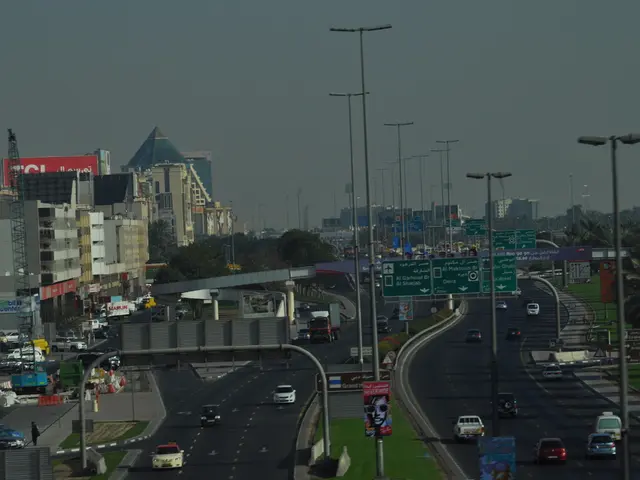Government urged to enhance anti-trafficking alertness by council
Spotlight on Countering Human Trafficking via Deceptive Overseas Job Offers
In the ever-expanding digital landscape, the Philippines has seen a surge in cases of human trafficking, orchestrated through enticing yet fraudulent job postings on social media. Recognizing the urgency to combat this insidious practice, the Cebu City Council has called upon key government agencies to ramp up public awareness initiatives.
During their May 7, 2025 meeting, the council, led by Councilor Rey Gealon, passed a resolution demanding increased vigilance from the Association of Barangay Councils (ABC), Department of Information and Communications Technology (DICT), National Bureau of Investigation (NBI), and Department of Labor and Employment (Dole).
Gealon zeroed in on the plight of 26 Filipinos who were lured to Cambodia through attractive job offers for encoder or customer service roles on Facebook, only to land in the clutches of online scam operations once they arrived. Upon arrival, their passports were confiscated, and they were coerced into participating in fraudulent activities, posing as Federal Bureau of Investigation agents or potential romantic partners to fleece foreigners.
In response to this alarming trend, the resolution urges ABC and Dole to launch public awareness campaigns about the prevalence of such deceptive job offers, while tasking DICT and NBI with the responsibility of scrutinizing and taking legal action against such online job postings. The council has disseminated copies of the resolution to the concerned agencies.
While governmental action is crucial, coordination between departments and efficient enforcement of anti-trafficking laws continue to pose challenges. Zamboanga City, for instance, has spearheaded multi-sectoral campaigns involving Public Employment and Service Office (PESO) and the Department of Labor and Employment (DOLE-9), with a focus on educating both job seekers and community leaders about the tactics of traffickers and legal protections for safe migration practices[2].
The Inter-Agency Council Against Trafficking (IACAT), instrumental in coordinating efforts across agencies in the fight against human trafficking, needs to address existing coordination gaps between law enforcement and social services to ensure efficient resolution of trafficking cases[5].
The Philippines has implemented laws like Republic Act No. 9208 to combat trafficking, but consistent enforcement remains inconsistent[5]. International cooperation is also integral in addressing trafficking, particularly in cases involving online scams in countries like Myanmar[4].
As fraudulent job offers leverage the enticing lure of better opportunities abroad, it's essential for the public to stay vigilant and informed. While the road to eliminating human trafficking is long, coordinated efforts from governmental bodies and heightened awareness among citizens offer a tangible path forward in protecting our country's people.
- The Cebu City Council, led by Councilor Rey Gealon, has called upon the Association of Barangay Councils (ABC), Department of Information and Communications Technology (DICT), National Bureau of Investigation (NBI), and Department of Labor and Employment (Dole) to step up efforts against human trafficking cases that are rising due to fraudulent job postings on social media.
- In response to the alarming trend of Filipinos being lured to Cambodia through attractive job offers, the council passed a resolution demanding increased vigilance, urging ABC and Dole to launch public awareness campaigns about the risks associated with such deceptive job offers.
- The resolution also tasks DICT and NBI with the responsibility of scrutinizing and taking legal action against fraudulent online job postings. The council has disseminated copies of the resolution to the concerned agencies.
- Efficient enforcement of anti-trafficking laws and coordination between departments remains challenging, as demonstrated by the inconsistent enforcement in the Philippines and the existing coordination gaps between law enforcement and social services.
- International cooperation is crucial in addressing trafficking, particularly in cases involving online scams in countries like Myanmar.
- In the general news and crime-and-justice sectors, it is vital for citizens to remain vigilant and informed about the tactics of traffickers and legal protections for safe migration practices, as the eradication of human trafficking is a long-term goal that requires concerted efforts from both governmental bodies and the public.







